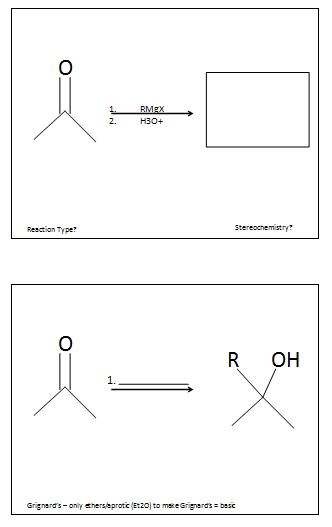- Joined
- Jan 5, 2012
- Messages
- 245
- Reaction score
- 30
OK, so as I've posted in other threads, I am taking the DAT June 24 and am teaching myself orgo from scratch. I really didn't want to wait another year to apply, so here I am. I breezed right through the basics, and am now stuck at learning all these wonderful mechanisms!!! I am spending 95% of my time trying to learn this stuff, and as the 24th is approaching, I have barely started on the other subjects (although I feel pretty good about the rest, just need some review and practice time-except PAT  )
)
At this point, I am really contemplating just going through Chad's again in a much quicker fashion, and moving on with everything else. Since I know I can get high scores in most other subjects, I almost feel like the best plan of action is to quit spending so much time on orgo and just aim for really high scores on the rest.
So, question is: should I be spending the most time just straight up memorizing the mechanisms listed on coursesaver and in roadmaps? And move on with other subjects? I just have no idea if this is what I should for the best outcome on the DAT. I have taken dat bootcamps practice orgo test and scored 13!!! I got all the basic, conceptual stuff right. I can do newman projections, resonance, etc. Just when it's asking for products or reagents, I am lost and just cant afford to spend my entire study time focusing on only orgo.
Any suggestions from anyone is greatly appreciated!!! Sorry for the rant, just starting to get stressed and overwhelmed!
Edit: To clarify, my main question is, how do you think I should study for orgo at this point? Should I simply memorize the reactions in Chads and destroyer? Do you think that will be enough since I have the basics down? That way I can work on that every day, and still have time to continue studying for everything else. Note: I am on day 3 of Chad's vids and am lost. Should I continue watching them or just memorize rxns?
At this point, I am really contemplating just going through Chad's again in a much quicker fashion, and moving on with everything else. Since I know I can get high scores in most other subjects, I almost feel like the best plan of action is to quit spending so much time on orgo and just aim for really high scores on the rest.
So, question is: should I be spending the most time just straight up memorizing the mechanisms listed on coursesaver and in roadmaps? And move on with other subjects? I just have no idea if this is what I should for the best outcome on the DAT. I have taken dat bootcamps practice orgo test and scored 13!!! I got all the basic, conceptual stuff right. I can do newman projections, resonance, etc. Just when it's asking for products or reagents, I am lost and just cant afford to spend my entire study time focusing on only orgo.
Any suggestions from anyone is greatly appreciated!!! Sorry for the rant, just starting to get stressed and overwhelmed!
Edit: To clarify, my main question is, how do you think I should study for orgo at this point? Should I simply memorize the reactions in Chads and destroyer? Do you think that will be enough since I have the basics down? That way I can work on that every day, and still have time to continue studying for everything else. Note: I am on day 3 of Chad's vids and am lost. Should I continue watching them or just memorize rxns?
Last edited:

